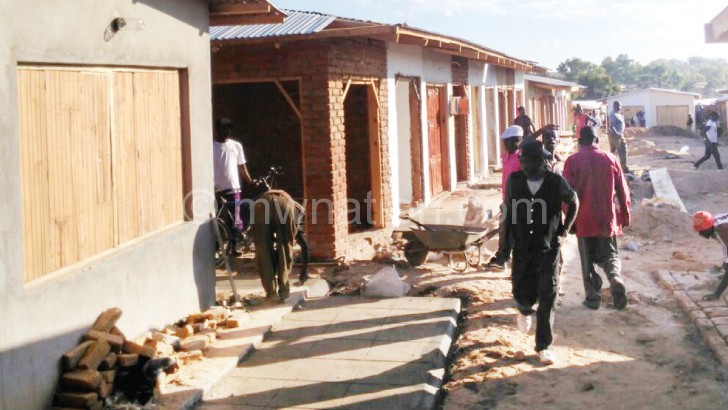Audit shows rot in LDF
Parliament’s Public Accounts Committee has described as sad and haunting findings of a performance audit on management and implementation of Local Development Fund (LDF) projects which has exposed mismanagement and non-adherence to criteria.
The report presented to the committee on Wednesday by the Auditor General’s office showed that 70 percent of the projects were not community-oriented contrary to the objectives of the project.

LDF was introduced to empower communities to take part in decision-making process through improved local governance and development management to reduce poverty and improve service delivery.
The report sampled nine districts of Mangochi, Phalombe, Chikwawa and Mwanza in the Southern Region; Dedza and Kasungu in the Central Region; and Mzimba, Nkhata Bay and Chitipa in the North. It uncovered that the projects, in almost all districts, were imposed on communities; hence, failing to serve the intended purpose.
In his reaction, committee vice-chairperson Kamlepo Kalua said the legislators were shocked with the findings of the report because they were not expecting rot and mismanagement. He said the committee will give its position after two weeks.
He said: “It is sad that the LDF performance audit is not what we expected, it is something haunting for this country. It is something we have to think about. We need to act to act on it. Whatever money was spent carelessly we need to recover it, and whoever was involved in the rot needs to be brought to book.”
Kalua, who is Rumphi East legislator, observed that in some cases project funds were released but there was nothing to show for it.
He said: “Some projects designed to last six months took four years to complete and the quality of some projects leaves a lot to be desired. For example, there was this water project in Phalombe at a site where there was another water project that failed, but K198 million was released towards the project.
“In other instances, a project that was supposed to cost K50 million took K300 million. What is this?”
LDF received funds from government and donors totalling K14 billion and K29 billion, respectively, to facilitate projects during the period 2010/11 and 2013/14.
The audit focused on the management and implementation of the projects for the four-year period from 2010/11 to 2013/14 financial years.
The report said when identifying a project, a district has to follow urban window handbook which checks the competence of eligibility of the councils and follow desk appraisals which in most districts didn’t happen.
In Phalombe, there was no urban development plan for Chitekesa Rural Growth Centre, situated 30 kilometres from the tarmac road, defeating the purpose of opening up the place to markets; hence, supposed beneficiaries cried foul.
The report has also revealed that 86 percent of the projects in the sampled nine districts were implemented without undertaking field appraisals, 73 percent of the projects did not originate from the district development plan and had poor community involvement which hindered the implementation of the projects.
The audit was conducted by LDF-Technical Support Team and other stakeholders, including Ministry of Local Government and Rural Development and National Local Government Finance Committee.





